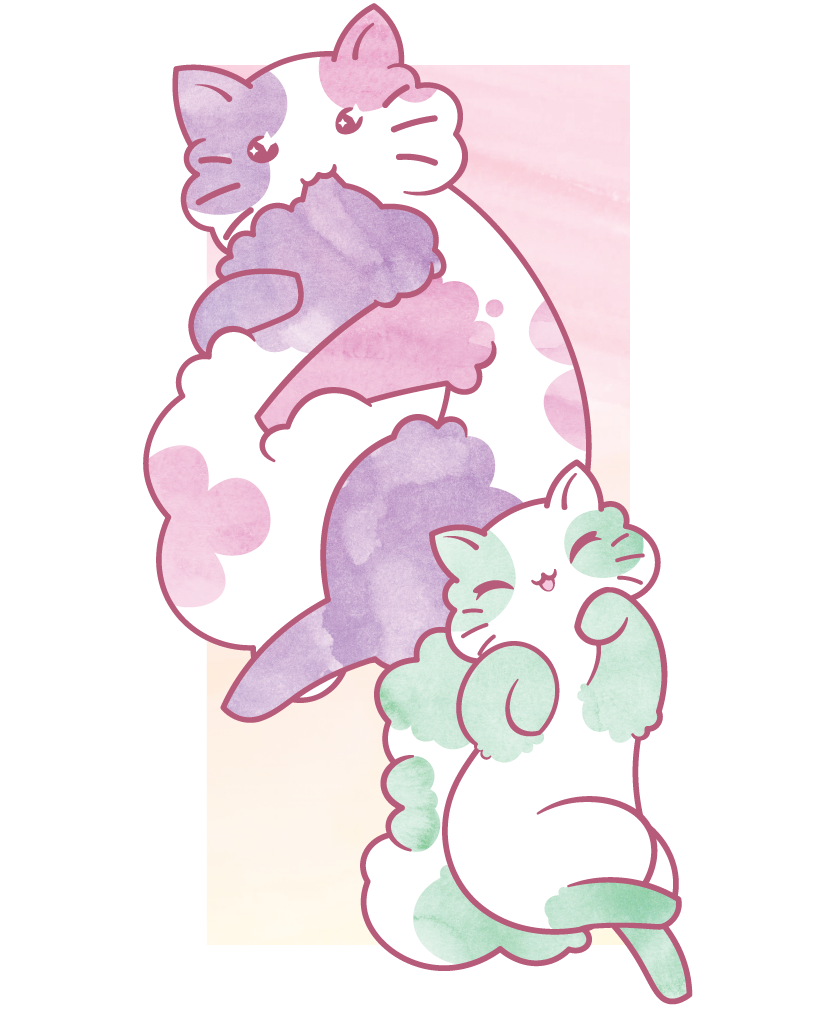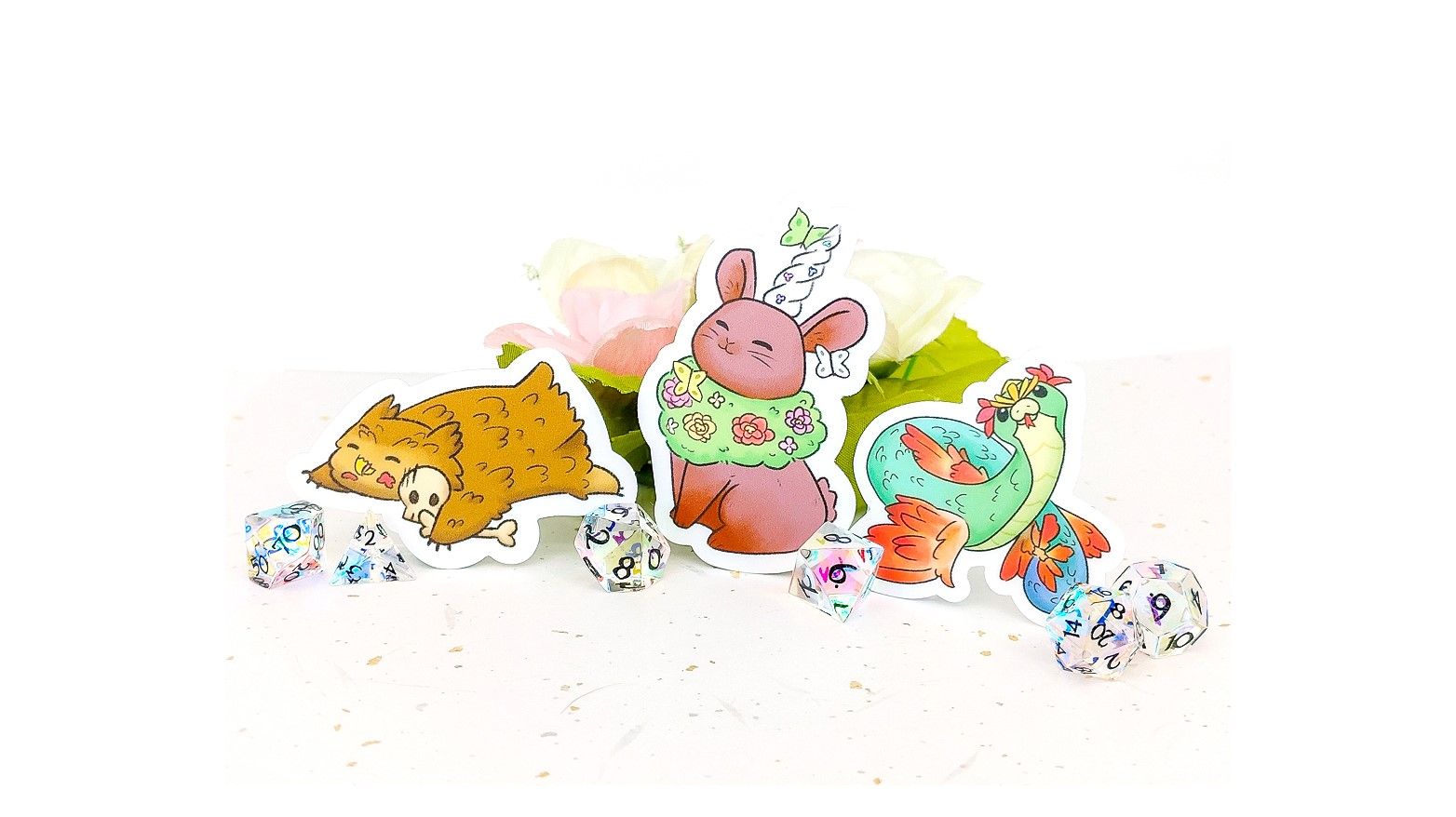Interested in starting your own entrepreneurial journey but unsure what to expect? Then read up on our interview with Christine Lum, Owner of Calico Cocoa, located in Toronto, ON, Canada.
What's your business, and who are your customers?
Calico Cocoa is an illustrator-run shop that sells cute animal merch. I tend to focus more on cute accessories like enamel pins, acrylic charms, stickers, and lanyards. These are usually based on real animals, but I also draw fantasy creatures like owlbears and faerie dragons. My customers typically consist of cute collectors and animal lovers from all walks of life, which is always a pleasure to meet and talk about our favourite animals!
Tell us about yourself
During my undergraduate degree, I had the opportunity to help host events for members of the club I helped manage. One of the annual events we held emulated what artist alleys at conventions looked like and allowed artists to sell their wares. "How do you make buttons," "what kinds of paper can you make prints on," and "are there ways to incorporate different types of overlays onto stickers" were some of the questions I had while watching artists sell their wares. And that's when I knew I had the merch-making bug like those artists! Since then, I've had a ton of fun making different products and merchandise.

What's your biggest accomplishment as a business owner?
My biggest accomplishment is having people connect my art style and me! While many artists typically have a signature style, my art style ranges depending on the medium I use. Sometimes, I work traditionally with paper and pencil, while other times, I'll do digital art with clean flat colours. So there's always something different about how my artwork and merchandise look. Yet, some people have followed me long enough or bought enough of my work to recognize it, and I think that's really cool and a fantastic experience for any artist to experience.
What's one of the hardest things that come with being a business owner?
Hands down budgeting and anything related to money management for me. While lots of small business TikToks may lead you to believe that having an art business is 50% making new art, 30% packaging and shipping, and 20% everything else, figuring out money, unsurprisingly, takes up a lot of people's time. And a lot of this is considered "unseen" office work that goes on behind the scenes. In my case, I spend anywhere from a couple of days to a week per month updating costs and product pricing, going through quotes or shipping estimates, or reading up on whatever new laws affect my business shipping or tax-wise.
What are the top tips you'd give to anyone looking to start, run and grow a business today?
- Do market research! Many artists I've talked to (especially newer ones) do not really do much market research for their products. While most of the time, yes, you could theoretically make any product you want, you generally want to profit from it too! So it's important to see who's selling similar products, what price points they're selling them at, and how customers will use the product. Some key questions I like to ask myself before making something include: would my current customers be interested in this item? Could this attract and retain new customers? Is there anything I can improve on? (ex. the listing description or the product itself)
- Keep your books up to date. This is a semi-follow-up to my answer to the previous question, but accounting can get overwhelming if you put it off too long. I made a mistake early on of not keeping better track of how much I was spending and on what versus my profit margins. It led to a lot of headaches, especially during tax season. So now I have a spreadsheet that accounts for everything from shipping costs to material costs and calculates how much I should be charging to make a profit.
- Start small and expand when you feel you have the capacity to. While starting off with those stationery sets or clothing lines can be very tempting, it's important to take a step back and see how much you can handle mentally, physically, and financially. Besides selling your things at in-person events or online, you'll have to deal with all the other things that come with running a business.
This includes customer support, advertising and promoting your work, inventory management, finances, creating new product designs, giving feedback to manufacturers if you use them, or quality checking products. It's a lot, especially for one person, I know. But if you start out small, it's easier to test the waters, see what you can handle, and then potentially expand into different products or hire people to assist with your business if you feel you need to and can!
Is there anything else you'd like to share?
It's tough running a small business, especially if you're starting out on your own. But don't get discouraged! There's always a community of people in the artist world willing to lend an ear, whether in the form of mentorship programs, online discussion groups, or from an event you were tabling at. It never hurts to introduce yourself, and you might just make some new friends along the way. Plus, if you have a question, chances are someone will have the answer or the ability to point you in the right direction.
Where can people find you and your business?
Website: https://www.etsy.com/ca/shop/CalicoCocoa/
Instagram: https://www.instagram.com/calicococoa/
Twitter: https://twitter.com/CalicoCocoa
If you like what you've read here and have your own story as a solo or small business entrepreneur that you'd like to share, then please answer these interview questions. We'd love to feature your journey on these pages.
Turn your craft into recurring revenue with Subkit. Start your subscription offering in minutes and supercharge it with growth levers. Get early access here.
